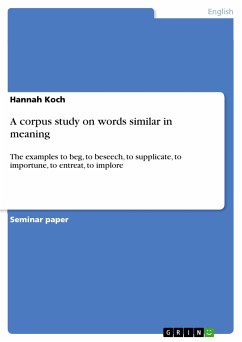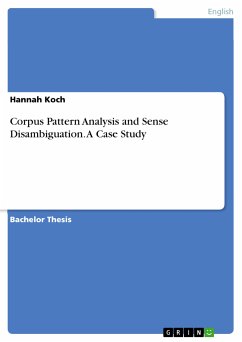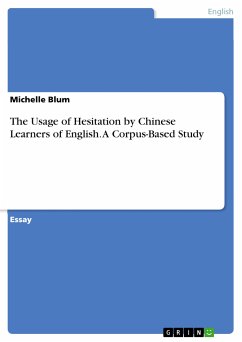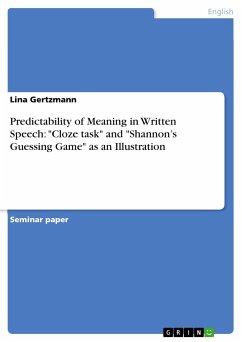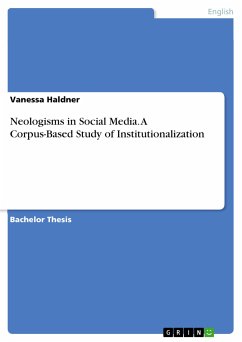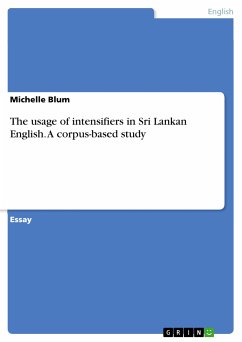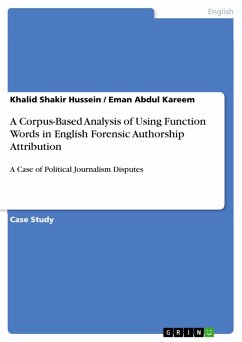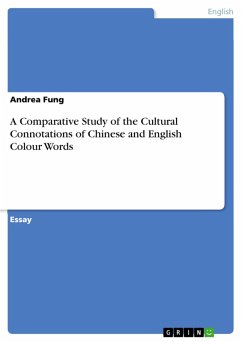Seminar paper from the year 2017 in the subject English Language and Literature Studies - Linguistics, grade: 2,0, University of Hannover, language: English, abstract: This Firthian principle will guide the following corpus-based study which investigates how the words to beg, to beseech, to supplicate, to importune, to entreat, and to implore, which are similar in meaning, differ in semantic patterns. Analysing and comparing the words in terms of their linguistic environment will reveal how the specific word is used naturally. Its idiomatic use might be surprising as language is always changing and developing, so one might find out new and unexpected aspects of a words use. Chapter 2 explains the Lexical Priming approach by Michael Hoey and its significance regarding this study. Furthermore, the four categories collocation, colligation, semantic preference and semantic prosody will be defined in order to lay the groundwork for the analysis in chapter 4. In the following 3rd chapter, corpora will be defined as well as the Neo-Firthian tradition of using corpora for lexical analysis and information about the source corpus for this study, Sketch Engine for Language Learning, will be provided. The chapter then concludes explaining the limitations of this study. Chapter 4 will state a few conditions and limitations of the analysis and will then continue to present the qualitative analysis of the target words modelled after Sinclair's model of extended lexical meaning. The 5th chapter will compare the results of chapter 4 to give an efficient overview of the semantic similarities and differences of the words. Lastly, chapter 6 will provide a concluding statement of whether they differ from each other at all or if they can substitute each other seamlessly. A final outlook will give additional ideas on how to expand this study.
Dieser Download kann aus rechtlichen Gründen nur mit Rechnungsadresse in A, B, BG, CY, CZ, D, DK, EW, E, FIN, F, GR, HR, H, IRL, I, LT, L, LR, M, NL, PL, P, R, S, SLO, SK ausgeliefert werden.

